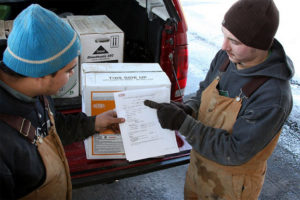Mission & Goals
Mission:
The National Pesticide Safety Education Center (NPSEC) supports and serves extension Pesticide Safety Education Programs (PSEPs) to be the premier national source of high quality research-based pesticide safety education.
Goals:
- Strengthen national system of state extensions PSEPs.
- Provide tools and educational resources to state PSEPs to better meet the needs of each state’s learners while increasing state PSEPs sustainability.
- Collaborate with PSEPs and others to coordinate and promote existing and create new educational resources and learning assessment tools.
- Improve the quality, consistency, accessibility, and outcomes of pesticide safety education in the nation.
- Become a self-sustaining Center.
 Who we serve:
Who we serve:
Our primary stakeholders are the Pesticide Safety Education Programs that are based at Land Grant Universities. On the national level, Pesticide Safety Education Programs (PSEPs) promote responsible decision-making and actions to protect pesticide users, public health, plant and animal health, and the environment. They offer information, training, and resources for pesticide applicators and the general public.
The primary stakeholders of PSEPs are certified pesticide applicators. Pesticide certification requirements vary by state, but anyone that purchases or uses a restricted pesticide must be a certified pesticide applicator. Some states also require anyone in the business of applying pesticides, either restricted use or general use, to the land or property of another to be certified.

